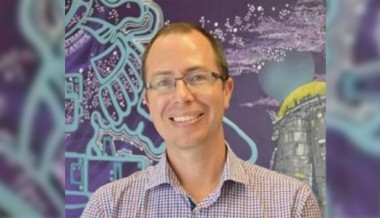Central Otago Diabetes

September 2015
A paediatric diabetes telemedicine clinic, introduced by Southern DHB paediatric endocrinologist Dr Ben Wheeler, could be the answer. For the Central Otago children under Dr Wheeler’s care, long car treks to Dunedin every three months have been replaced by a half hour video conference in the clinic at Dunstan Hospital in Clyde.
Dr Wheeler, one of only two paediatric endocrinologists in the South Island, provides paediatric diabetes services across the Otago area and beyond. There are about 100 children and young people with type 1 diabetes in the Otago area.
“Previously, children living in Central Otago would have to travel to see me every three months,” he says. “That meant a round trip of six to eight hours and time off work for mum and dad – sometimes two days if they came the night before. Often brothers and sisters would need to come too – all this for a half hour consultation.
“Now, children go to the clinic in Dunstan and video conference with me in my office in Dunedin. In the Dunstan clinic, diabetes nurse specialist Sharon Sandilands examines the child, downloads glucose metres and insulin pumps and prescribes medications. Dietician Nicky McCarthy offers diet advice at the same clinic session. From Dunedin, I review test results and discuss treatment and any issues with the patient via video link.
“Not only does this save whole families a huge amount of time and inconvenience, it means they develop strong links with the Dunstan team and have someone local they can call if they need help or advice.”
 Wanaka parent Jo Harry’s two daughters – Kate (10) and Sam (12) – attend the clinic at Dunstan. Jo says being able to access care closer to home is fantastic.
Wanaka parent Jo Harry’s two daughters – Kate (10) and Sam (12) – attend the clinic at Dunstan. Jo says being able to access care closer to home is fantastic.
“As a family living in a rural area the clinic is really convenient and makes a huge difference. It takes the pressure off the family especially in travel time to Dunedin and it also means that we don’t have to take as much time off work and school.”
Previously, the trip to Dunedin every three months meant a day off work for one parent and a day off school for the girls. “Now we only need to go to Dunedin once a year, and everything else can be done via the local clinic.”
Dr Wheeler says the whole set up has been easy and low cost.
“For my office in Dunedin, the DHB purchased a webcam and speakers. We were awarded funding as part of Southern DHB’s 2014 innovation challenge, and that went towards set up. It would have cost no more than a couple of hundred dollars.
“Our software is Microsoft Lync, which has performed extremely well, and is one of the few platforms approved for transferring sensitive material so there is very good data security. All records are either sent to the Cloud, or if they are written records, securely scanned through to me.
“We have had the odd minor technical hitch, like an issue with a camera at one end, and a bad line, but overall it has gone extremely smoothly.”
Ben Wheeler says the new approach has also helped create a great team spirit with those in Dunstan. “Because we are sharing the management of patients, we have far more contact now – we discuss results and the best treatment approach for each child.”
Using telehealth to manage paediatric diabetes patients has the potential to be used across the South Island, and beyond – a colleague of Ben’s already provides a similar service out of Nelson, for patients in Blenheim.
“There is a lot of interest in what we are doing,” says Ben, “I am sensing the beginning of a wave of people who are thinking about introducing this type of service.”
